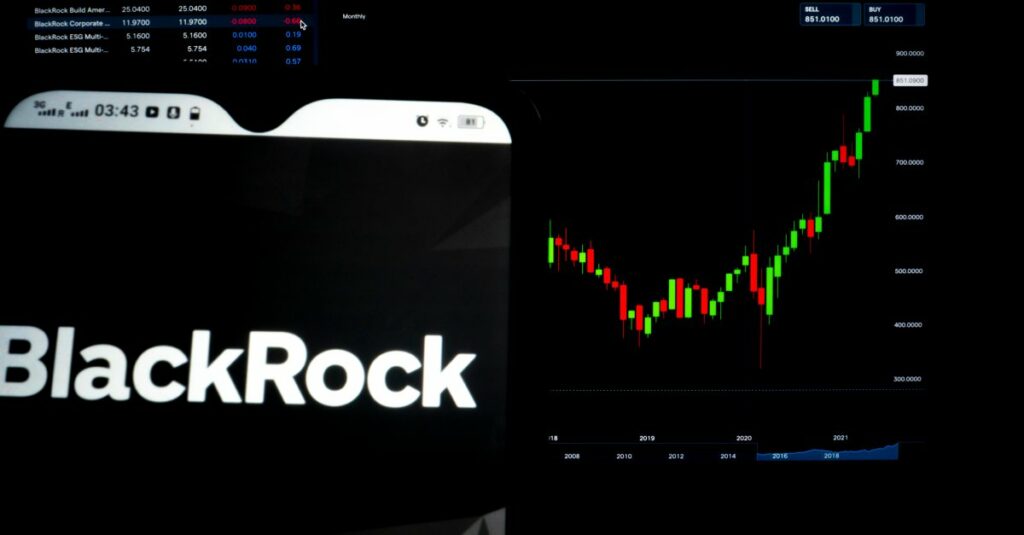How To Invest In Blackrock? Invest In 2023
BlackRock, Inc. is one of the world’s leading investment management firms, known for its vast array of investment products and services.
With trillions of dollars in assets under management, BlackRock is a powerhouse in the global financial industry. If you’re considering investing in BlackRock or its various offerings, this guide will provide you with a comprehensive overview of how to get started.
Table of Contents
Understand BlackRock, Inc:
Before you invest in any company or financial institution, it’s essential to have a clear understanding of what they do and their financial health.
BlackRock is primarily an asset management company, offering a wide range of investment solutions, including mutual funds, exchange-traded funds (ETFs), and alternative investments.
Research the company’s history, leadership, investment philosophy, and track record. You can find this information on BlackRock’s official website, in financial news publications, and through independent research sources.
Determine Your Investment Goals:
Before you invest in BlackRock products, you need to define your investment goals. Are you looking for long-term growth, income, or a combination of both?

Do you have a specific risk tolerance, time horizon, or investment amount in mind? Understanding your objectives will help you choose the right investment products within BlackRock’s offerings.
Choose the Right Investment Vehicle:
BlackRock offers a wide range of investment vehicles, including mutual funds, ETFs, and managed accounts. Each of these options caters to different investment needs and risk profiles:
Mutual Funds: BlackRock offers a variety of actively managed mutual funds that cover different asset classes and investment strategies. Research each fund’s objective, historical performance, fees, and minimum investment requirements to make an informed choice.
ETFs: BlackRock is one of the largest providers of ETFs in the world, known for its iShares brand. ETFs are similar to mutual funds but trade on stock exchanges like individual stocks. They offer diversification and liquidity, making them a popular choice among investors.
Managed Accounts: BlackRock also provides managed account solutions for individuals seeking personalized portfolio management. These accounts are often available through financial advisors and are tailored to your specific financial goals and risk tolerance.
Open an Investment Account:
To invest in BlackRock products, you’ll need to open an investment account. You can do this through various channels, including online brokerage platforms, financial advisors, or directly through BlackRock itself.

The process typically involves providing personal and financial information, selecting your desired investment vehicle, and funding your account.
Research Specific BlackRock Funds or ETFs:
Once your account is set up, it’s time to research and select the specific BlackRock funds or ETFs you want to invest in. Consider factors such as:
Investment Objective: Ensure that the fund’s objectives align with your investment goals.
Performance: Review historical performance to gauge how the fund has performed in different market conditions.
Fees: Understand the expense ratios and any other associated costs.
Holdings: Examine the fund’s portfolio holdings to determine if they align with your investment strategy.
Monitor and Adjust Your Portfolio:
Investing is an ongoing process. Regularly monitor your investments and make adjustments as needed. Review your portfolio’s performance, rebalance when necessary, and stay informed about changes in BlackRock’s fund offerings or the broader financial markets.

Seek Professional Guidance:
If you’re uncertain about your investment decisions or prefer professional guidance, consider consulting a financial advisor. They can provide personalized advice based on your financial situation and goals.
Diversify Your Portfolio:
Diversification is a fundamental principle of investing. It involves spreading your investments across different asset classes, sectors, and geographic regions to reduce risk.
When investing in BlackRock products, consider diversifying your portfolio by choosing a mix of their funds or ETFs that align with your investment goals.

Asset Class Diversification: BlackRock offers a wide range of funds and ETFs covering various asset classes, including stocks, bonds, real estate, and more. Diversifying across these asset classes can help you manage risk and potentially enhance returns.
Sector and Industry Diversification: Within asset classes, diversify further by investing in different sectors and industries. For example, if you’re interested in equity investments, consider spreading your holdings across technology, healthcare, finance, and other sectors.
Geographic Diversification: BlackRock’s global presence allows you to access investments in various regions around the world. Consider allocating some of your investments to international funds to benefit from geographic diversification.
Risk Diversification: Different BlackRock funds and ETFs come with varying levels of risk. Ensure that your portfolio includes a mix of low, moderate, and high-risk investments that align with your risk tolerance and investment horizon.
Understand Fees and Expenses:
Investment fees and expenses can impact your overall returns over time. It’s essential to have a clear understanding of the costs associated with investing in BlackRock products.

Expense Ratios: Each fund or ETF has an expense ratio, which represents the annual fees as a percentage of your investment. Lower expense ratios are generally preferable, as they leave more of your returns in your pocket.
Load Fees: Some mutual funds may charge load fees, which are sales charges applied when you buy or sell shares. Be aware of any load fees associated with the funds you’re considering.
Transaction Costs: When trading ETFs, you may incur brokerage commissions or spreads. These costs can add up, especially if you trade frequently. Consider how transaction costs may affect your investment strategy.
Tax Implications: Understand the tax implications of your investments, including potential capital gains taxes. BlackRock can provide information on the tax efficiency of their funds and ETFs.
Stay Informed and Monitor Performance:
Investing isn’t a set-it-and-forget-it endeavor. Regularly monitor your investments and stay informed about market developments and BlackRock’s fund performance.
Regular Review: Set a schedule for reviewing your portfolio, whether it’s quarterly, semi-annually, or annually. Rebalance your holdings if they drift from your target allocation.
Market Research: Keep an eye on global economic and market trends. Understanding broader market conditions can help you make informed decisions about your investments.
Fund Reports: Read BlackRock’s fund reports and prospectuses. These documents provide detailed information about the fund’s strategy, holdings, and performance.
Seek Professional Advice: Consider consulting a financial advisor periodically to ensure your investment strategy remains aligned with your goals, especially during major life events or changes in your financial situation.
Tax-Efficient Investing Strategies:
Minimizing taxes on your investments can significantly impact your overall returns. Explore tax-efficient strategies when investing with BlackRock.
Tax-Advantaged Accounts: Utilize tax-advantaged accounts like IRAs and 401(k)s to benefit from tax deferral or tax-free growth on your investments.
Tax-Loss Harvesting: Learn about tax-loss harvesting, a strategy where you offset gains with losses to reduce your tax liability.
Consider ETFs: ETFs often have tax advantages over mutual funds due to their structure. BlackRock’s iShares ETFs are designed with tax efficiency in mind.
Long-Term Holding: Holding investments for the long term can lead to lower capital gains tax rates. Understand the tax implications of short-term vs. long-term holding periods.
Conclusion:
Investing in BlackRock can be a valuable addition to your investment strategy, given the company’s reputation and diverse range of investment products.
However, it’s crucial to conduct thorough research, define your investment goals, and choose the right investment vehicles to align with your financial objectives.
By following these steps and staying informed about your investments, you can potentially benefit from BlackRock’s expertise and grow your wealth over time. Remember that all investments carry risks, so diversification and a long-term perspective are key to successful investing.
Also Read:
- Unlocking Opportunities Käntäjää: The Translator Investment Advantage
- Unveiling the Käntäj Investment Plan: A Roadmap to Financial Success
- Kääbntäjä : A Guide to Money Investment”
- How Are Bozullhuizas Partners Ltd? Business Model, Services, and Reputation
- Unveiling the Mystery: The Enigmatic World of 2045996879





